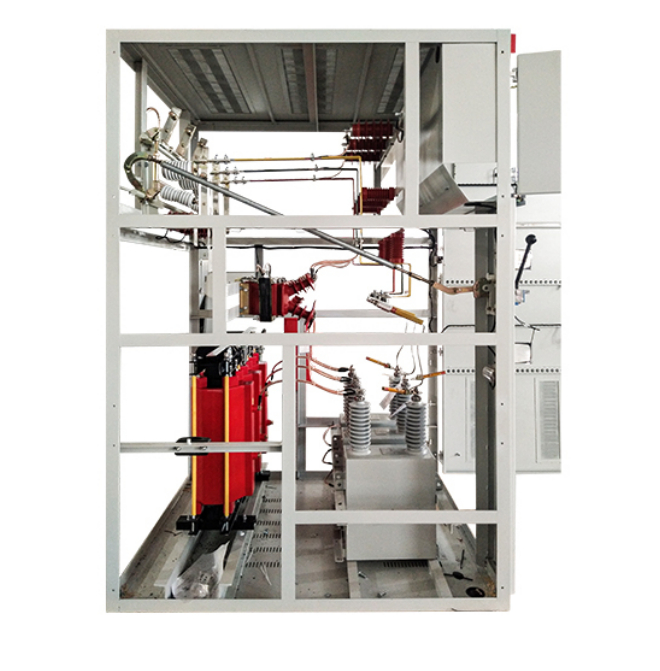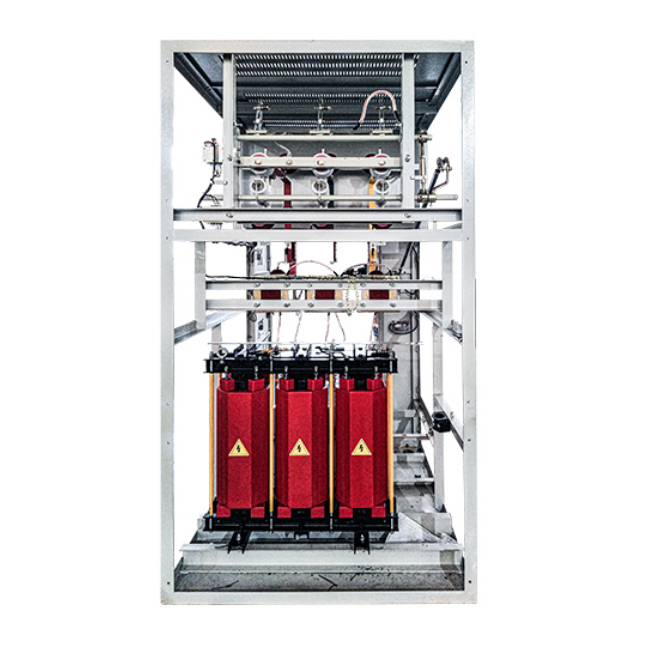Why Choose Active Power Factor Compensator?
In the ever-evolving field of electrical engineering, the importance of maintaining a stable and efficient power system cannot be overstated. One critical component that plays a significant role in achieving this stability is the active power factor compensator. This device is essential for improving power factor and voltage stability in electrical power systems by compensating for reactive power. Reactive power is the “imaginary” component of power that flows back and forth between the power source and the load, and managing it effectively is crucial for optimal system performance.

What is an Active Power Factor Compensator?
Defining the Active Power Factor Compensator
An active power factor compensator is a sophisticated device designed to improve power factor and voltage stability within electrical power systems. It achieves this by compensating for reactive power, thus enhancing overall power quality and efficiency. By addressing the reactive power component, the Active Power Factor Compensator ensures that the energy supplied is used more effectively, reducing losses and improving the stability of the electrical network.
Operating Conditions and Requirements
To function effectively, active power factor compensators must operate within specific environmental parameters. These include an ambient temperature range of -35℃ to 55℃, with the average temperature over 24 hours not exceeding 35℃. The relative humidity should be no more than 90%, and the atmospheric pressure should range between 80-110kPa. Additionally, the altitude should not exceed 2000 meters, and the wind speed should be less than or equal to 35 meters per second. Installation can be done indoors or outdoors, provided the environment is free from explosive or corrosive media and equipped to handle weather conditions such as rain, snow, wind, and sand.
The Need for Active Power Factor Compensators
Enhancing Power Quality
One of the primary reasons for employing active power factor compensators is to enhance power quality. Poor power factor can lead to increased losses in the system, overheating of electrical components, and reduced lifespan of equipment. By compensating for reactive power, the Active Power Factor Compensator ensures that the power supplied is utilized efficiently, thereby reducing wastage and improving the overall quality of power delivered.
Reducing Voltage Fluctuations
Voltage stability is another critical aspect of efficient power systems. Voltage fluctuations can cause significant issues, including equipment malfunction, inefficiencies, and even damage to sensitive electronic devices. Active power factor compensators play a crucial role in stabilizing voltage levels, ensuring that all connected equipment operates within the optimal voltage range, thereby enhancing the reliability and longevity of the electrical infrastructure.
Supporting Renewable Energy Integration
With the increasing adoption of renewable energy sources like wind and solar, the need for stable and reliable power systems has never been greater. Renewable energy sources often introduce variability and unpredictability into the power grid. Active power factor compensators help mitigate these issues by providing the necessary reactive power compensation, ensuring the smooth integration of renewable energy sources into the existing power grid.
Application Fields of High Voltage Passive Reactive Power Compensation Device TBB
Wind Farms
Wind farms are a major source of renewable energy but are often associated with voltage fluctuations and power quality problems. The variability of wind speeds can lead to inconsistent power output, posing a challenge for stable grid operation. Reactive power compensation cabinets can be employed in wind farms to mitigate these issues. By compensating for the reactive power, these devices help stabilize the voltage levels and improve power quality, facilitating better integration of wind energy into the power grid.

Electric Vehicles
The growing popularity of electric vehicles (EVs) has led to increased demand for power grids. Charging stations, in particular, can cause significant voltage drops and power quality issues due to the high power requirements of EVs. Reactive power compensation cabinets can be utilized to improve power quality at charging stations. By providing the necessary reactive power compensation, these devices help maintain stable voltage levels, reducing the strain on the power grid and ensuring efficient operation of EV infrastructure.
Microgrids
Microgrids are small, localized power grids that can operate independently or in conjunction with the main power grid. They are often used in remote areas or for critical infrastructure where reliability is paramount. However, maintaining power quality and stability in microgrids can be challenging due to their isolated nature. Reactive power compensation cabinets can be crucial in such scenarios, ensuring that the microgrid operates efficiently by stabilizing voltage levels and improving power quality.
Smart Grids
Smart grids represent the future of electrical power systems, utilizing advanced information and communication technologies to enhance efficiency and reliability. The complexity of smart grids requires sophisticated solutions to manage power quality and stability. Reactive power compensation cabinets are integral to the optimization of smart grid operations. By compensating for reactive power, these devices help maintain stable voltage levels and improve the overall efficiency of the smart grid, ensuring reliable power delivery.
Solutions Provided by Shanghai Wenlida Technology Co., Ltd.
Innovative Technology
Shanghai Wenlida Technology Co., Ltd. is a leading supplier of active power factor compensators. We provide innovative solutions to meet the needs of modern power systems. Its active power factor compensator uses advanced technology to provide accurate and efficient reactive power compensation. Ensure optimal power quality and voltage stability.
Customizable Solutions
Recognizing the diverse needs of different applications, Shanghai Wenlida Technology Co., Ltd. offers customizable solutions tailored to specific requirements. Whether for wind farms, electric vehicle infrastructure, microgrids or smart grids. Active power factor compensators can be configured to provide the necessary reactive power compensation. Thereby improving the performance and reliability of electrical systems.
Reliable Performance
Shanghai Wenlida Technology Co., Ltd. focuses on quality and reliability. Ensure that its active power factor compensators can withstand harsh environmental conditions. By complying with strict operating conditions and environmental requirements, its active power factor compensators can provide consistent performance. Make it a reliable choice for a variety of applications.
Conclusion
In conclusion, active power factor compensators are essential devices for improving power factor and voltage stability in electrical power systems. By compensating for reactive power, these devices improve power quality, reduce voltage fluctuations and support the integration of renewable energy. Whether in wind farms, electric vehicle infrastructure, microgrids or smart grids, active power factor compensators play a vital role in ensuring efficient and reliable operation of modern power systems. Shanghai Wenlida Technology Co., Ltd. has become a leading supplier of active power factor compensators with its innovative and customizable solutions to meet the diverse needs of today’s power systems.
